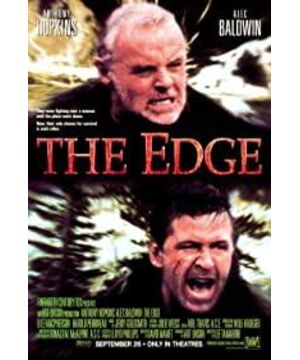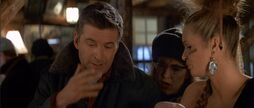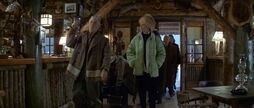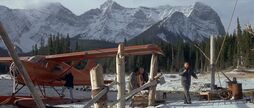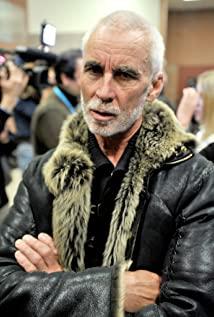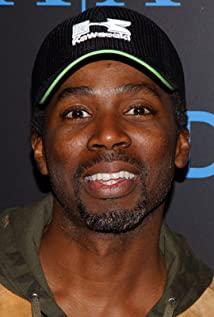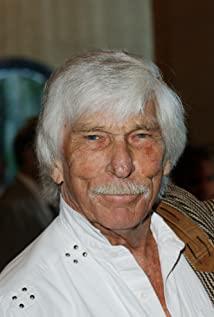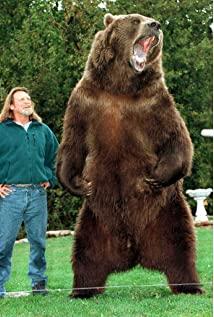The movie "Breakthrough" tells the story of a billionaire, Charles, who was caught in a jungle adventure. He is very rational and knowledgeable, even a little indifferent, sensitive and cunning. Perhaps it is these qualities that make him fluent in business and fly like a plane, but He himself was impotent, and according to his wife, he was like an angel, except for his wings.
Behind the sanity is Charles' over-repressed emotions and desires. There is almost no trace of emotion on his face. He only occasionally exposes his inner fears when he is alone in the kitchen. When he is afraid of losing control of his emotions and desires, reason becomes his control. A good way to feel, logic is always easier to control and control than emotions and desires. This is also a kind of high recognition of the rules. This is probably the reason why he likes to read. The so-called 'straight men' and 'straight women' in life are similar situations. . The movie opens from the huge wing, to the tiny Charles getting off the plane, from the totem of the tall bird, to the submerged plane and the broken wing, from the self-help manual in his hand, to the book that fell to the bottom of the water, It alludes to Charles' contradictory inner conflict, tall on the outside and small on the inside, wanting to fly but breaking his wings. . .
Impotence, apart from its organic causes, from a psychoanalytic point of view, may be an expression of Oedipus conflict, too strict rules, harsh punishments that bring pleasure, and if impotence, avoid this Dangers occur, although sacrifices are willing, like broken wings, lost wings, so he is sensitive and suspicious of people, and self-suggests to bears and traps: making love will be like a bear of desire falling into a trap and being killed, and never again Can't get out. The emergence of emotions and desires will always activate the fear of punishment in his heart, so he suppressed it with reason, and the two clashed fiercely without ever reaching a compromise.
The relationship between him and Bob in the story has externalized the incompatible conflict in his heart. Bob, the incarnation of lust, will try to break through the fortress of reason, challenge the rules, and lead to loss of control, which makes him restless, "You When are you going to kill me?". Bob is full of passion, but lacks rational restraint. He can cheat, show off, be capricious, throw away his bloody clothes to attract bears, and ignore the dangers brought by traps. Their rivalry is also a contest between his inner emotions and reason. , takes place in the jungle where his heart is full of dangers.
Reasonable thinking can avoid dying of shame, and passionate Bob also saved Charles's life. Perhaps there is another part of dying in shame, which is the shame of lust caused by his inner conflict, and lust is a symbol of one's adulthood, and Strict rules can make people subconsciously feel that enjoying lust is a kind of betrayal, suggesting that he is lost in conflict and unable to extricate himself. The dialogue of making fire with ice is a metaphor for the beginning of the cooperation between lust (sun) and reason (ice), and the two work together to kill the bear to reach the climax of the story. Lust and reason cooperate to defeat the bear representing fear. Fear has been following, teasing and tormenting them, and it has also made them: from the initial panic flight to the fire to protect themselves, from the beginning to resist side by side to the murder of the bear by plotting, finally conquered the fear. Once did not believe that fate would change, now Charles did it himself.
When this still unstable integration faces the stimulus of cheating evidence, the balance is broken again, and it also comes to the reality that must be faced. The out-of-control Bob wants to kill Charles, but falls into the trap, but Charles also jumps Into the trap and rescued Bob, which symbolizes healing. When Bob fell into the trap, he must be full of fear, feeling that he would be killed by Charles, which is the same as Charles' fear of punishment, but represents reason and The part of the rules did not punish the lustful part, but forgave and saved him. Now Charles has reached a reconciliation in his heart and is no longer afraid of being killed by a trap.
Bob's death is a very interesting but also crucial part. The repair of the Oedipus conflict needs to undergo a process of castration, that is, instinctive lust, to accept the constraints and enter the rules of society, like an airplane in the rules. Flying within the range, there will be no too much fear and no risk The conflict left only Charles who integrated lust and reason, which is why in the end, when people asked Charles "how did friends die?", he said they died when they saved themselves.
View more about The Edge reviews


